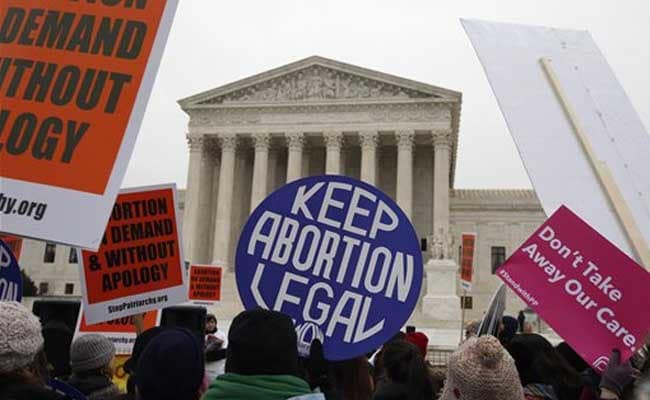
Reproductive rights groups expressed outrage on Monday after ProPublica revealed that a Georgia woman died after receiving delayed medical care because of the US state’s restrictive abortion law.
Amber Nicole Thurman, 28, developed a rare complication from abortion pills and died during emergency surgery in August 2022, with an official state committee blaming the fatal outcome on a “preventable” delay in performing a crucial procedure.
Georgia recently passed a law making dilation and curettage (D&C) a felony, with medical exceptions that doctors warned were vague and hard to interpret.
“Amber would still be alive if it weren’t for Donald Trump and Brian Kemp’s abortion ban,” said Mini Timmara, president of Reproductive Freedom for All. “They have blood on their hands.”
The US Supreme Court’s 2022 decision to overturn national abortion rights has sparked a wave of bans and restrictions in 22 states, bringing reproductive rights to the forefront of the upcoming presidential election.
ProPublica said this is the first abortion-related death officially deemed “preventable” and that it plans to publish details of a second case soon.
These official reviews are not made public, but ProPublica obtained copies of the reports.
Thurman, a healthy medical assistant and mother of a 6-year-old boy, decided to terminate the twin pregnancy to maintain her newfound stability, her best friend, Rikaria Baker, told ProPublica.
She and her son had recently moved into a new apartment complex and she planned to enroll in nursing school. She wanted to have a surgical abortion, but Georgia’s six-week abortion ban forced her to receive treatment at a clinic in North Carolina.
On the day of the procedure, the hours-long commute was hampered by traffic and Thurman was unable to get a 15-minute appointment.
The clinic offered medication abortion with mifepristone and misoprostol. Although it is highly safe, rare complications can occur.
Thurman’s condition worsened over several days, bleeding heavily and vomiting blood. He was taken to Piedmont Henry Hospital in Stockbridge.
Doctors discovered that not all of the foetal tissue had been removed from her body and she was diagnosed with “acute severe sepsis”.
But despite his rapidly deteriorating health, the hospital delayed Thurman’s dilation and curettage procedure by 17 hours.
By the time they operated, the situation had become so severe that open abdominal surgery was needed. The doctor operated and found that a hysterectomy was also needed – but during the procedure, Thurman’s heart stopped.
His mother recalls his last words being, “Promise me you’ll take care of my son.”
The state committee found there was a “good probability” that Thurman’s life could have been saved if the procedure had been followed sooner.
“Life of the mother” exceptions have proven widely inadequate, forcing women to cross state borders for lifesaving care.
“She died in a hospital, surrounded by medical personnel who could have saved her life,” feminist writer Jessica Valenti wrote in X magazine. “This is what abortion bans do.”
(Except for the headline, this story has not been edited by NDTV staff and is published from a syndicated feed.)





